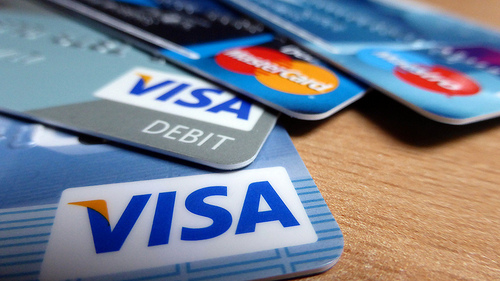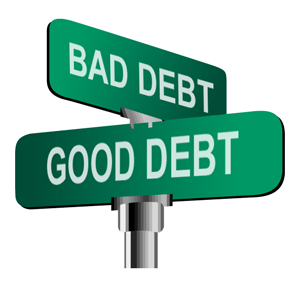Statute of Limitations on Debt Collection – Power Advice
Statute of Limitations on Debt Collection: In an effort to control debt resolution duration, the court system created and enacted statute of limitations codes. The statute of limitations on old debt indicates the amount of time, in years, that creditors have to file a claim for money owed on the account. Court officials in each jurisdiction assigned a particular length of time for debts owed in that area. Once the debt ages past the indicated limitations, the creditor cannot pursue payment through the court system. Understanding the history of the statute of limitations on debt along with current regulation standards can help debtors handle their debts appropriately.
History of Debt Limitations
Modern statutes regarding debt collection come from ancient Roman laws, including the Twelve Tables. The laws started to ease disputes regarding oral debt contracts that were tying up the court system and delaying proceedings regarding criminal matters. This system worked well for the Roman perception of property ownership and debt creation.
English interpretation of Roman laws changed the definition of ownership to rely less on possession and more on contractual exchange between individuals. As a result, written contracts became the preferred way to handle business between two or more parties. The value placed on each type of contract varies from state to state, resulting in differing laws for each modern jurisdiction.
Current Regulations
Without a time limit on old debt retrieval actions, creditors pass their clients’ accounts from collection agency to collection agency without an end in sight. All of those agencies file collection requests with the court, which often jams up the system, especially in busy jurisdictions.
Each state developed their own code system with a certain number of years for oral and written contracts. With the exception of open accounts, the time limit starts counting down the moment the debtor defaults on the account. The debt timer countdown restarts each time debtors make a payment on the account, however.
Most debt limits range from three to seven years, with several states on the extreme side of the spectrum. For example, Kentucky enables creditors to pursue written contracts for fifteen years. On the other side, oral contracts in California must be resolved within two years or the debt is forgiven at the end of that time span.
States have the right to revisit the assigned statute of limitations on debt any time. Landmark court cases, in particular, have the power to influence state-level change of the debt laws. Unless the laws infringe on citizen rights, however, lawmakers do not usually challenge the code as it is written.
Statute of Limitations for Each State (in number of years)
| State |
Oral |
Written |
Promissory |
Open-ended Accounts |
| AL |
6 |
6 |
6 |
3 |
| AR |
5 |
5 |
5 |
3 |
| AK |
6 |
6 |
3 |
3 |
| AZ |
3 |
6 |
6 |
3 |
| CA |
2 |
4 |
4 |
4 |
| CO |
6 |
6 |
6 |
3 |
| CT |
3 |
6 |
6 |
6 |
| DE |
3 |
3 |
3 |
4 |
| DC |
3 |
3 |
3 |
3 |
| FL |
4 |
5 |
5 |
4 |
| GA |
4 |
6 |
6 |
4** |
| HI |
6 |
6 |
6 |
6 |
| IA |
5 |
10 |
5 |
5 |
| ID |
4 |
5 |
5 |
4 |
| IL |
5 |
10 |
10 |
5 or 10*** |
| IN |
6 |
10 |
10 |
6 |
| KS |
3 |
5 |
5 |
3 |
| KY |
5 |
15 |
15 |
5 |
| LA |
10 |
10 |
10 |
3 |
| ME |
6 |
6 |
6 |
6 |
| MD |
3 |
3 |
6 |
3 |
| MA |
6 |
6 |
6 |
6 |
| MI |
6 |
6 |
6 |
6 |
| MN |
6 |
6 |
6 |
6 |
| MO |
5 |
10 |
10 |
5 |
| MS |
3 |
3 |
3 |
3 |
| MT |
3 |
8 |
8 |
5 |
| NC |
3 |
3 |
5 |
4 |
| ND |
6 |
6 |
6 |
6 |
| NE |
4 |
5 |
5 |
4 |
| NH |
3 |
3 |
6 |
3 |
| NJ |
6 |
6 |
6 |
6 |
| NM |
4 |
6 |
6 |
4 |
| NV |
4 |
6 |
3 |
4 |
| NY |
6 |
6 |
6 |
6 |
| OH |
6 |
15 |
15 |
6 |
| OK |
3 |
5 |
5 |
3 |
| OR |
6 |
6 |
6 |
6 |
| PA |
4 |
6 |
4 |
6 |
| RI |
10 |
10 |
6 |
4 |
| SC |
3 |
3 |
3 |
3 |
| SD |
6 |
6 |
6 |
6 |
| TN |
6 |
4 |
6 |
6 |
| TX |
4 |
4 |
4 |
4 |
| UT |
4 |
6 |
6 |
4 |
| VA |
3 |
6 |
6 |
3 |
| VT |
6 |
6 |
5 |
4 |
| WA |
3 |
6 |
6 |
3 |
| WI |
6 |
6 |
10 |
6 |
| WV |
5 |
15 |
6 |
4 |
| WY |
8 |
10 |
10 |
8 |
** Georgia Court of Appeals came out with a decision on January 24, 2008 in Hill v. American Express that in Georgia the statute of limitations on a credit card is six years after the amount becomes due and payable.
*** An Illinois appeals court ruled on May 20, 2009, that the statute of limitations on a credit card debt without a written contract was 5 years.
**** State law doesn’t specify the limitations on open accounts.
Source: bankrate.com
Responsibility Of Debtors
While the debt sits within the given time limit, debtors have the responsibility to pay it as instructed. The payment schedule is either spelled out in the written contract or hashed out verbally between the debtor and creditor representative. Defaulting on the account can result in collection actions, including a court judgment and issue of wage garnishment actions.
Once the debt passes the given limitation time, debtors do not have the obligation to pay the debt. Making a payment on the account will reset the time limit to the date the payment was received, however. Creditors may attempt to intimidate or threaten debtors in an effort to receive payment and reset the clock. As a result, it is important to refuse to make a payment and ignore collection calls and letters after the original time limit passes.
If debtors can afford to do so, it is smart to pay off past debts to maintain a good credit score. However, if that is not possible, it is important to retain documents that list the last payment received by their creditors to keep track of the age of each account in default. If creditors or collection agencies claim a different date than the one held in the records, it is important for debtors to file a dispute to obtain proof of money owed on the account and date of last payment. A dispute will keep creditors from moving forward with collection actions, including filing a report with the national credit tracking agencies.
Forgiveness Of Debts
Creditors cannot file a claim with the court after the account reaches the end of the statute of limitations for that jurisdiction. As a result, debtors are not required to make any further payments and the debt will drop off the credit report. Creditors can write off the forgiven debt on their taxes that year. Depending on the account type, debtors may still owe taxes on the forgiven amount. Credit scores will not immediately jump back up after the debt drops off. Instead, debtors will need to work on paying bills on time to increase the score enough to qualify for future accounts. Alternatively, debtors can open a secured credit card to bring their score back up to a functional level.






 If personal finance issues make you want to pull the covers over your head, it can be hard for you to know whether you’re coasting along okay or whether you need help with your credit score.
If personal finance issues make you want to pull the covers over your head, it can be hard for you to know whether you’re coasting along okay or whether you need help with your credit score.



